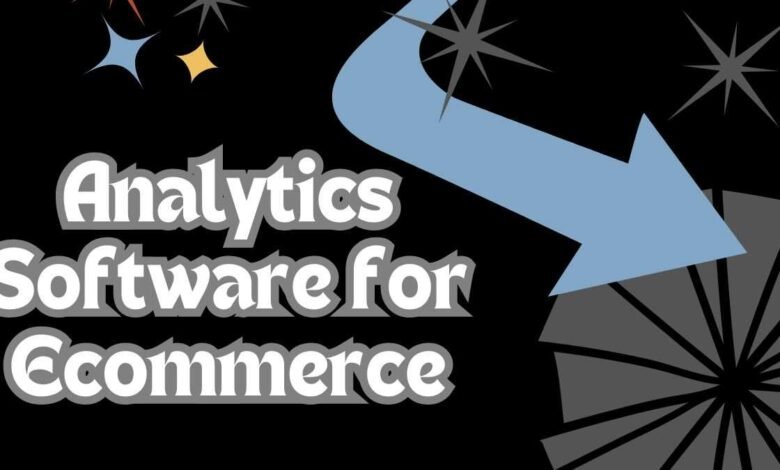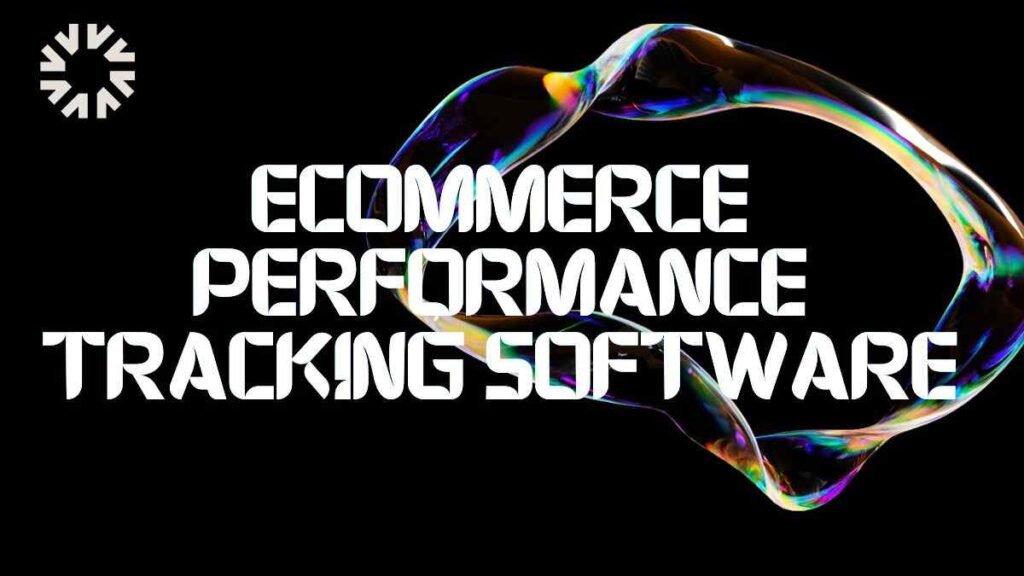Analytics Software for Ecommerce: Ultimate Tool to Boost Sales

Analytics software for ecommerce has shifted the dynamics of how businesses track and manage data. Online stores are thriving, but success isn’t simply about having an appealing website or offering products at competitive prices. To stay ahead of the curve, ecommerce businesses must harness the power of data. Analytics software for ecommerce allows business owners and managers to make informed decisions based on customer behavior, sales patterns, and website performance. But what are these tools, and how do they benefit an online store?
Understanding Ecommerce Data Analytics Tools
When it comes to running an online store, understanding what’s happening behind the scenes is crucial. This is where ecommerce data analytics tools come into play. These tools gather, analyze, and report on key metrics, providing insights into customer behavior, product performance, and overall business health. The data collected helps businesses understand how visitors interact with their websites, which products perform well, and how marketing campaigns contribute to sales. Without these insights, online stores operate in the dark. Making decisions based solely on intuition can be risky, especially in the fast-moving world of ecommerce. Ecommerce data analytics tools ensure that decisions are grounded in reality, leading to better outcomes for businesses.
Benefits of Using Analytics Software for Ecommerce
Investing in analytics software provides several benefits for online stores. Firstly, these tools offer a detailed view of customer journeys. From the moment a visitor lands on a website to when they make a purchase or leave, analytics software tracks each step. This information allows businesses to optimize their websites, ensuring visitors have a smooth and engaging shopping experience. Analytics software for ecommerce another key benefit is the ability to identify top-performing products. With analytics software, businesses can see which items are selling the most, which products have the highest margins, and which ones are lagging. By understanding product performance, ecommerce managers can adjust pricing strategies, run targeted promotions, or even discontinue underperforming items. Additionally, analytics software helps businesses track the effectiveness of marketing efforts. Whether it’s social media campaigns, email marketing, or paid advertising, ecommerce businesses can measure the ROI of their marketing initiatives and make adjustments as needed.
Best Analytics Platforms for Online Stores: Analytics Software for Ecommerce
When choosing the right analytics platform for your online store, several options stand out. Google Analytics is one of the most popular choices due to its versatility and robust reporting features. It’s a powerful tool for tracking traffic, user behavior, and conversion rates. Many ecommerce businesses rely on Google Analytics to gain a high-level view of their website’s performance. Klaviyo is another tool that specializes in customer behavior analysis. It’s particularly useful for ecommerce businesses that prioritize email marketing and customer segmentation. Klaviyo’s integration with ecommerce platforms like Shopify allows businesses to track customer interactions, segment audiences, and create targeted email campaigns based on behavioral data. For those looking for an all-in-one solution, Shopify Analytics offers built-in reporting features. This tool provides a comprehensive view of your store’s sales, traffic, and customer data.
Must Visit: Insight Edge
Ecommerce Performance Tracking Software

In the competitive ecommerce landscape, performance tracking is essential. Ecommerce performance tracking software allows businesses to monitor key metrics such as sales, website traffic, and conversion rates in real-time. By tracking these metrics, businesses can quickly identify trends and make data-driven decisions. Performance tracking tools also help businesses stay agile. For example, if a particular product suddenly experiences a drop in sales, the software will alert the business, allowing them to investigate the cause and take corrective action. This proactive approach ensures that businesses can respond to issues before they impact the bottom line. Moreover, ecommerce performance tracking software can be integrated with marketing tools to provide a holistic view of campaign effectiveness.
Customer Behavior Analytics for Ecommerce: Analytics Software for Ecommerce
Understanding customer behavior is key to ecommerce success. Customer behavior analytics involves analyzing data about how customers interact with an online store, from the pages they visit to the products they purchase. This data is invaluable for personalizing the shopping experience and increasing conversion rates. For instance, if analytics software shows that a significant number of customers abandon their shopping carts before completing a purchase, the business can investigate why this happens. It could be due to high shipping costs, a complicated checkout process, or simply that customers are browsing without the intent to buy. By identifying these patterns, ecommerce stores can implement strategies to reduce cart abandonment and boost sales. Customer behavior analytics also provides insights into product recommendations.
Sales Analytics Software for Ecommerce

At the heart of any ecommerce business is sales. Sales analytics software helps businesses track sales data, understand sales trends, and forecast future performance. This software provides a detailed breakdown of sales by product, region, and customer segment, allowing businesses to make informed decisions about inventory, pricing, and promotions. For ecommerce businesses that handle large volumes of sales, having a reliable sales analytics tool is critical. These tools provide visibility into revenue streams, helping businesses identify which products and markets are driving the most growth. Additionally, sales analytics software can highlight seasonal trends, allowing businesses to plan ahead for busy periods like holidays or promotional events.
Conclusion
Analytics software has become an indispensable tool for ecommerce businesses. By utilizing data from customer behavior, sales patterns, and marketing campaigns, businesses can make informed decisions that drive growth and profitability. Whether it’s understanding why customers abandon their carts, optimizing product pricing, or tracking the effectiveness of a marketing campaign, analytics tools provide the insights necessary to thrive in the competitive world of ecommerce. Online stores that leverage the power of analytics are better equipped to meet the needs of their customers, optimize their operations, and ultimately succeed in a highly competitive market.
FAQs
What are the benefits of using analytics software for ecommerce?
Analytics software helps businesses track customer behavior, product performance, and marketing effectiveness, leading to better decision-making and increased profitability.
How does customer behavior analytics improve the shopping experience?
By analyzing customer interactions, businesses can personalize the shopping experience, optimize their website, and reduce cart abandonment rates.
Which analytics platform is best for Shopify users?
Shopify Analytics is a built-in tool specifically designed for Shopify users, offering comprehensive reporting on sales, traffic, and customer data.
What role does sales analytics play in ecommerce?
Sales analytics tools provide insights into revenue streams, product performance, and sales trends, helping businesses make data-driven decisions about inventory, pricing, and promotions.
How does performance tracking software help ecommerce businesses?
Performance tracking software allows businesses to monitor sales, traffic, and conversion rates in real-time, helping them quickly identify trends and take action when necessary.
Read More : Best eCommerce Platform for Wholesale





